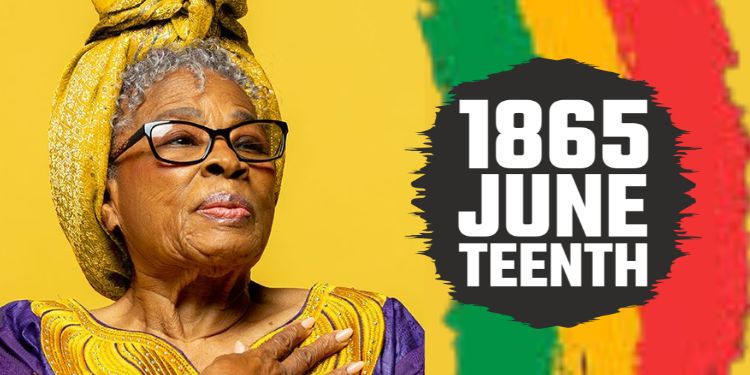On June 17, 2021, President Biden signed Senate bill 475, making Juneteenth the 11th federal holiday.
Americans will celebrate Juneteenth, marking the day when the last enslaved people in the United States learned they were free.
For generations, Black Americans have recognized the end of one of the darkest chapters in U.S. history with joy, in the form of parades, street festivals, musical performances or cookouts.
The U.S. government was slow to embrace the occasion — it was only in 2021 that President Joe Biden signed a bill passed by Congress to set aside Juneteenth, or June 19th, as a federal holiday.
And just as many people learn what Juneteenth is all about, the holiday’s traditions are facing new pressures — political rhetoric condemning efforts to teach Americans about the nation’s racial history, companies using the holiday as a marketing event, people partying without understanding why.
HOW DID JUNETEENTH START?
The celebrations began with enslaved people in Galveston, Texas. Although President Abraham Lincoln’s Emancipation Proclamation freed the slaves in 1863, it could not be enforced in many places in the South until the Civil War ended in 1865. Even then, some white people who had profited from their unpaid labor were reluctant to share the news.
Laura Smalley, freed from a plantation near Bellville, Texas, remembered in a 1941 interview that the man she referred to as “old master” came home from fighting in the Civil War and didn’t tell the people he enslaved what had happened.
“Old master didn’t tell, you know, they was free,” Smalley said. “I think now they say they worked them, six months after that. Six months. And turn them loose on the 19th of June. That’s why, you know, we celebrate that day.”
News that the war had ended and they were free finally reached Galveston when Union Maj. Gen. Gordon Granger and his troops arrived in the Gulf Coast city on June 19, 1865, more than two months after Confederate Gen. Robert E. Lee surrendered to Union Gen. Ulysses S. Grant in Virginia.
Granger delivered General Order No. 3, which said: “The people of Texas are informed that, in accordance with a proclamation from the Executive of the United States, all slaves are free. This involves an absolute equality of personal rights and rights of property between former masters and slaves, and the connection heretofore existing between them becomes that between employer and hired labor.”
The now-free people in Galveston started celebrating Juneteenth the next year, an observance that has continued and spread around the world. Events include concerts, parades and readings of the Emancipation Proclamation.
WHAT DOES ‘JUNETEENTH’ MEAN?
It’s a blend of the words June and nineteenth. The holiday has also been called Juneteenth Independence Day, Freedom Day, second Independence Day, and Emancipation Day.
It began with church picnics and speeches and spread as Black Texans moved elsewhere.
Most U.S. states now hold celebrations honoring Juneteenth as a holiday or a day of recognition, like Flag Day. Juneteenth is a paid holiday for state employees in Texas, New York, Virginia and Washington, and hundreds of companies give workers the day off.
Opal Lee, a former teacher and activist, is largely credited for rallying others behind a campaign to make Juneteenth a federal holiday and referred to as ‘The Grandmother of Juneteenth’. The 96-year-old had vivid memories of celebrating Juneteenth in East Texas as a child with music, food and games. In 2016, the “little old lady in tennis shoes” walked through her home city of Fort Worth, Texas and then in other cities before arriving in Washington, D.C. Soon, celebrities and politicians were lending their support.
Lee was one of the people standing next to Biden when he signed Juneteenth into law.











